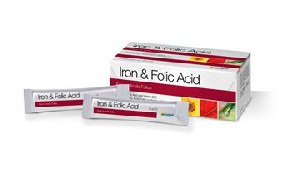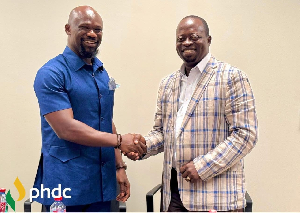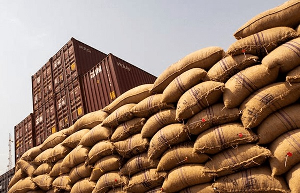A study conducted by the Ghana Health Service (GHS) has indicated an overall reduction in anaemia levels of girls in Junior and Senior High Schools in the Northern and Volta Regions respectively.
The study noted that the overall anaemia levels of the students studied, reduced from 24.3 to 20.0 per cent among girls in Junior High Schools (JHS), and from 26.0 to 18.7 per cent among those at the Senior High School (SHS) levels in 2017.
Mrs Faustina Vimariba Tour, the Greater Accra Regional Nutrition Officer, made these known when she presented an overview and objectives of the Girls’ Iron-Folate Tablet Supplementation (GIFTS) Programme at a stakeholder sensitization workshop in Accra on Monday.
She said the Iron Folic Acid (IFA) supplementation for menstruating women was adopted as one of several actions going on to improve maternal nutrition, reduce the high rates of anaemia in adolescents and women of childbearing age and contribute to reduction in maternal mortality.
She said the GIFTS programme, was a collaborative initiative by GHS, Ghana Education Service (GES), UNICEF and other key partners and focuses on empowering menstruating adolescents and women with information to take control of their health and lives.
Mrs Tour said the programme had already covered the Northern, Upper East, Brong Ahafo and Volta Regions, and was currently scaling up the GIFTS Programme to the Greater Accra, Ashanti, Eastern and Central Regions respectively with effect from March, 2019.
The objectives of the GIFTS she said, was to reduce anaemia levels among adolescent girls in the implementing regions, provide IFA supplements to adolescent girls 10-19 years for both in-school and out -of -school, and build synergy among stakeholders for the implementation of GIFTS and its contribution to sustainable social mobilization impact.
She said the positive outcomes had been achieved after the giving sustained free doses of IFA supplement tablets to girls in both public and private schools in the two regions, but despite the success chalked, the GIFTS programme was confronted with some challenges.
There was low sensitisation levels among communities, teachers, students and parents, leading to misconceptions and oppositions to the implementation process, she said.
The workshop, she said would empower stakeholders to become worthy advocates and educators for an effective implementation process, resolve issues regarding reports of time consuming on the part of teachers and other implementing officers due to the huge number of girls involved, and also the non-availability of water and cups posed additional challenges for some areas.
She said the GHS deemed it crucial to address the high anaemia levels among the target groups, by promoting the weekly (on Wednesdays) intake of IFA supplements among menstruating adolescent girls through schools and health facilities, and engage women aged 20 years and above through communication to generate demand, and encourage them to buy and take the IFA supplements on their own, she said.
Mrs Tour said these ages were regarded as vulnerable groups due to factors such as menstruation, rapid growth and body changes, as well as child birth, saying, poor nutrition resulting in deficiencies in the essential vitamins and illnesses including parasitic infections, were some of the causes of anaemia in girls.
She said anaemia resulted from poor nutrition and other illnesses, and led to poor academic performance, high school dropout, reduced physical fitness and work productivity, low birth weight in babies, as well as morbidity and mortality of mother and baby.
Dr Comlan Luiz Amoussou-Gohoungo, the Deputy Regional Director of Public Health Services, called on all stakeholders to join in the efforts being made to sensitise communities on anaemia, to help eradicate it among menstruating girls and women in their reproductive ages.
Mrs Comfort Kwagir Aggrey, the representative from the GHS, said the GHS with support from UNICEF would ensure sustained supply of commodities to Coordinators at Regional, District and Circuits levels, for distribution to the schools and health facilities, ensure quality monitoring, data collection and evaluation.
Mr Patrick Banafo, the Leader of the Ghana Education Service Team, outlined the roles of the GES, saying, they were responsible for the overall management and coordination of the IFA among the students in the schools, monitoring and collating data as well as writing reports.
Health News of Tuesday, 12 March 2019
Source: ghananewsagency.org













